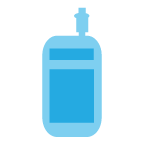Penalties for Nebraska DUI Convictions
If you are convicted of drunk driving in Nebraska, the law imposes several penalties. These include jail time, fines, alcohol education courses, and installation of an ignition interlock device in your vehicle. Additionally, there are other consequences to consider.
Requesting a DMV Hearing
If authorities arrest you in Nebraska, you must request a DMV hearing within 10 days. Failing to do so will result in a suspended license.
Importance of Contacting an Attorney
That’s why it’s important to contact an experienced attorney right away.
Nebraska DUI Cases: ALR Hearing and Criminal Court Case
Nebraska DUI laws establish two separate cases when authorities arrest someone for DUI in the state.
Administrative License Revocation Hearing (ALR Hearing)
The first case is an Administrative License Revocation Hearing (also called an ALR Hearing). Under Nebraska DUI law, an ALR (Administrative License Revocation) Hearing is a civil process. In this hearing, the state aims to suspend your driving privileges for a specified duration.
Nebraska DUI Criminal Court Case
The second case is the Nebraska DUI criminal court case. Here, the state is trying to convict you of drunk driving, and require you to do time in jail, pay fines, attend alcohol education courses, have an ignition interlock installed in your car, and much more.
URGENT! IF YOU’VE BEEN ARRESTED FOR NEBRASKA DUI, YOU HAVE ONLY TEN (10) DAYS FROM THE DATE OF YOUR ARREST TO REQUEST A HEARING WITH THE NEBRASKA DMV, OR YOUR LICENSE WILL BE AUTOMATICALLY SUSPENDED.
Nebraska DUI laws provide that there are two ways where someone can be convicted of drunk driving in Nebraska. The first type of Nebraska DUI charge relates to the condition of the driver and applies where the driver is mentally or physically impaired by consuming alcohol and/or drugs. There is no particular alcohol level that needs to be reached for a common-law Nebraska DUI conviction. It is simply a question of whether or not the driver’s impairment can be proved by driving pattern, field sobriety test performance, the physical appearance of the driver, or chemical test results when they are available.
Nebraska DUI laws also allow for conviction where there is a violation of Nebraska’s “per se” DUI laws. These Nebraska DUI laws criminalize driving above Nebraska’s legal limit of .08% BAC. Per se DUI laws in Nebraska focus solely on body chemistry. This means you can be convicted of a DUI based on your blood alcohol content, even if your driving skills are not impaired by alcohol consumption.
Nebraska DUI arrests do trigger give rise to the right to a jury trial. Nebraska DUI juries consist of six community members. To secure a guilty verdict, the prosecutor must convince all six jurors beyond a reasonable doubt of the defendant’s guilt. If even one juror is not convinced, it results in a hung jury. This will possibly result in the dismissal of the Nebraska DUI.
Nebraska DMV Hearings
Nebraska DUI law provides that the DMV can administratively suspend the driving privileges of anyone arrested for Nebraska DUI. This will happen automatically following an arrest for drunk driving unless a DMV Hearing request is tendered within 10 days of arrest. This is just one of the reasons it is so important to contact a qualified Nebraska DUI defense lawyer as soon as possible following a Nebraska DUI arrest.
Nebraska DUI ALR Hearings assess the legality of the stop and arrest. They determine if the arrestee submitted to a chemical test with results of .08 or higher or if the arrestee refused after being advised of the consequences. An ALR Hearing Officer—a lawyer—conducts the Nebraska DUI ALR Hearing and makes recommendations to the Director of the DMV. Following the DUI ALR Hearing, the Hearing Officer will recommend a decision to the Director, who makes the final decision. The decision will be mailed to you and your lawyer by certified mail.
The consequences for losing the DUI ALR Hearing are as follows:
- First Offense – 90 day suspension with a work permit available after the first 30 days.
- Second and subsequent Offense – 1 year suspension with no work permit.
License Suspensions in Criminal Court: In addition to the ALR suspensions as outlined, a conviction in criminal court will result in an additional suspension of your Nebraska driving privileges following a conviction for Nebraska DUI:
First Offense:
- 60 days with probation
- 6 months if sentenced to jail
Second Offense:
- 1 year with probation
- 1 year if sentenced to jail
Third Offense:
- 1 year with probation
- 15 years if sentenced to jail
Fourth Offense:
- 1 year with probation
- 15 years if sentenced to jail
However, some criminal courts allow you to drive for all purposes if you have an ignition interlock device installed on your car. This is a portable breath-testing device that tests you for alcohol consumption each time you start your car and periodically while driving. It’s cumbersome and intrusive, but it does allow you to drive. Not all courts authorize this device.
So how do the two fit together? If you win the ALR, the DMV will mail your license back to you. When you go to court, you’ll have a suspension, but may be able to drive with the ignition interlock. If the ALR causes you to lose your license, the court will credit the suspension period with the time already suspended under the ALR. They run at the same time.
Criminal Court Consequences
Nebraska DUI laws provide for additional punishment beyond the driver’s license consequences as outlined above. The amount of punishment will vary considerably, depending upon whether this is a first-, second- or third-offense DUI.
First Offense
- Maximum: sixty days imprisonment and five hundred dollars fine.
- Mandatory minimum: seven days imprisonment and four hundred dollars fine.
Second Offense
- Maximum: ninety days imprisonment and five hundred dollars fine.
- Mandatory minimum: thirty days imprisonment and five hundred dollars fine.
Third Offense
- Maximum: one-year imprisonment and six hundred dollars fine.
- Mandatory minimum: ninety days imprisonment and six hundred dollars fine.






